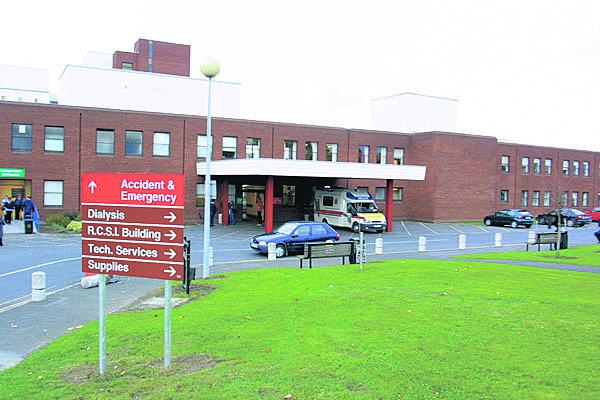Comment time running out to deal with health crisis
Dublin People 10 Oct 2015
TO GET a true insight into the scale of the crisis engulfing our health service, just talk to any of those working on the frontline in our hospitals.
Behind the headlines are the harrowing human stories, not only of patients left languishing for days on trolleys in hospital corridors, but of nurses driven to tears by their stressful working environments.
One senior nurse told me that the daily pressures faced by her staff have become unbearable and many are at breaking point. Two nurses for every 24 patients is often the norm, even though a ratio of one to six is considered best practice.
Patients are huddled together on trolleys in corridors while awaiting a bed. In times of extreme overcrowding, they may be there for up to four days, although two is more common.
“Moving them around to facilitate visitors or let them go to the toilet is like a game of chess,” the nurse explained. “Sometimes the relatives have to give us a hand.”
Having sick or elderly patients sandwiched together in such close proximity is not an ideal situation as it can increase the risk of superbugs spreading through a hospital.
Patients and relatives regularly vent their frustrations at the nursing staff. Understandably, many are aggrieved that after a lifetime of working and paying taxes, they are being treated in deplorable conditions, deprived of their dignity.
Despite talk of an economic recovery, there is no feel good factor for those working in our hospitals. The crisis is as bad as it’s ever been; a perfect storm of staff shortages, low pay, ward closures and lack of appropriate step-down facilities. It’s compounded by an increase in the number of people having strokes in their 40s and 50s.
Much has been made of the fact that the recruitment of nurses has recommenced, with jobs in the health service promised for the next batch of graduates. But it’s not just a case of simply making up the numbers. Many of our more experienced nurses have emigrated to countries where the profession enjoys terms and conditions far more favourable than here.
“A nurse in Dubai can make five grand a month, tax free, along with additional perks such as flights,” the nurse we spoke to explained. “Here, a nurse starting out is paid just over €11 an hour and is expected to work in a war zone.”
She blames successive governments for reacting to problems instead of anticipating them. Investing in step-down community based care would go some way towards alleviating hospital overcrowding, she says, as would reopening closed wards.
Regardless of the goodies dished out in this week’s Budget, this Government will ultimately be judged on meaningful health service reform. As another winter of hospital chaos looms, the coalition’s time to make a difference is fast running out.
- Comment time running out to deal with health crisis












